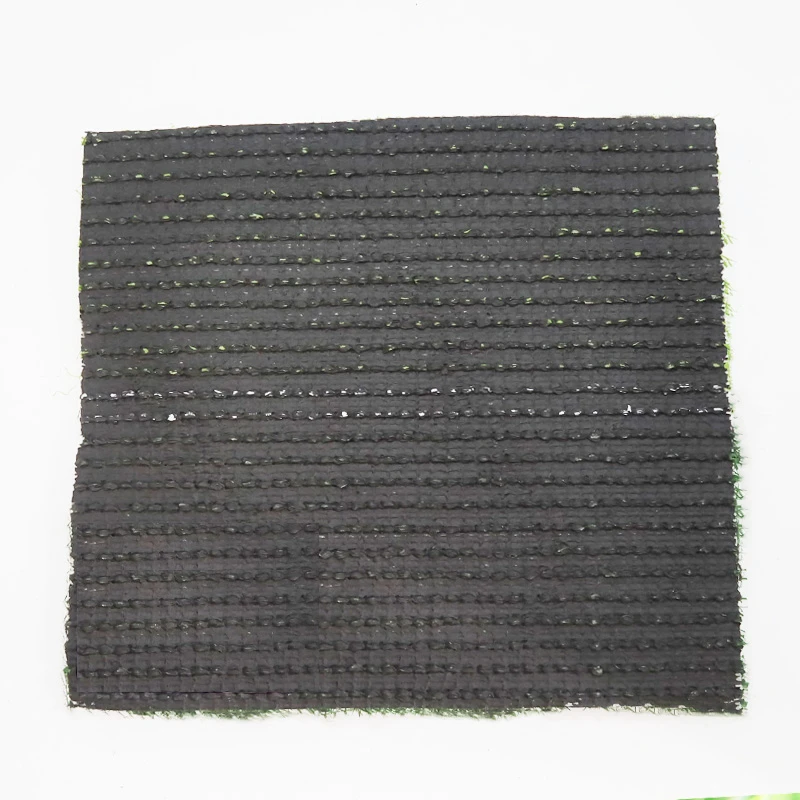
- Afrikaans
- Arabic
- Belarusian
- Bengali
- Czech
- Danish
- Dutch
- English
- Esperanto
- Estonian
- Finnish
- French
- German
- Greek
- Hindi
- Hungarian
- Icelandic
- Indonesian
- irish
- Italian
- Japanese
- kazakh
- Rwandese
- Korean
- Kyrgyz
- Lao
- Latin
- Latvian
- Malay
- Mongolian
- Myanmar
- Norwegian
- Persian
- Polish
- Portuguese
- Romanian
- Russian
- Serbian
- Spanish
- Swedish
- Tagalog
- Tajik
- Thai
- Turkish
- Turkmen
- Ukrainian
- Urdu
- Uighur
- Uzbek
- Vietnamese
Installing Artificial Grass on Sloped Soil for Enhanced Landscape Aesthetics and Durability
Oct . 13, 2024 11:20 Back to list
Laying Artificial Grass on Soil on a Slope
Laying artificial grass on a slope can be a rewarding project, enhancing both aesthetics and functionality in your outdoor space. Artificial grass offers a low-maintenance alternative to natural grass, making it an appealing choice for sloped areas where erosion or drainage may be a concern. In this article, we will outline the steps and considerations involved in this process.
Preparing the Slope
Before you start laying the artificial grass, proper preparation of the slope is critical. First, assess the gradient of your slope. A gentle slope is more manageable, while a steep slope may require additional measures to ensure stability. The key to a successful installation is to provide a solid and stable base.
1. Clearing the Area Begin by clearing the slope of any debris, rocks, or existing grass. This step will help ensure a clean surface for laying the artificial grass. If there are any weeds, it is advisable to apply a weed suppressant or remove them manually.
2. Excavating the Soil For a more even surface, you may need to excavate the top layer of soil. Typically, a depth of about 2-4 inches is sufficient, depending on the thickness of the artificial grass you plan to lay. This process also allows you to reshape the slope if needed, ensuring a more gradual incline.
3. Leveling the Ground After excavation, use a rake to level the soil. On a slope, this might involve creating a series of flat steps or terraces. The goal is to prevent water from pooling on the surface, which could lead to drainage problems or damage to the grass over time.
Installing a Base Layer
The next step is to create a stable base for your artificial grass. This usually involves adding a layer of crushed stone or gravel, which helps with drainage and provides a solid foundation.
1. Adding Drainage Material Spread a layer of crushed stone about 1 inch thick across the area. This material will improve water flow and help prevent erosion on the slope.
2. Compacting the Base After laying the stone, use a plate compactor to compress it firmly into place. This ensures that the base is solid and won’t shift over time, which is especially important on slopes.
laying artificial grass on soil on a slope

3. Weed Barrier Fabric Consider laying down a layer of weed barrier fabric over the compacted base. This fabric will prevent weeds from growing through your artificial grass while allowing water to drain through.
Laying the Artificial Grass
Now that your slope is prepared, it’s time to install the artificial grass.
1. Measuring and Cutting Measure the area accurately and cut the artificial grass to size, taking care to leave some extra material for adjustments.
2. Securing the Grass Begin laying the grass from the lowest point of the slope, working your way up. This method helps prevent water from getting trapped under the grass. Use landscape staples or adhesive to secure the grass to the ground.
3. Seaming If your installation requires multiple pieces of grass, ensure that the seams are tightly fitted and properly secured. This helps avoid visible gaps and enhances the overall appearance.
Finishing Touches
Once the grass is laid, it’s crucial to add the finishing touches.
- Infill Material Consider adding infill material like sand or rubber granules to enhance the durability and feel of the grass, especially in high-traffic areas. - Brushing the Grass Use a broom to brush the grass fibers upright, giving it a more natural look.
Conclusion
Laying artificial grass on a slope may sound challenging, but with the right preparation and careful execution, it can significantly enhance your outdoor space. Enjoy your new, low-maintenance lawn that stays vibrant and inviting without the hassle of traditional grass upkeep!
-
The Benefits of Artificial Turf for Indoors
NewsJul.15,2025
-
How Artificial Grass Suppliers Ensure Quality Products
NewsJul.15,2025
-
Artificial Grass and Pets: A Space for Relaxation
NewsJul.08,2025
-
Balcony & Outdoor Decoration with Artificial Grass
NewsJul.08,2025
-
Best Indoor Artificial Grass for Home
NewsJul.07,2025
-
Best Pet Turf for Dogs: Safe & Durable Artificial Grass Options
NewsJul.07,2025
Products categories









